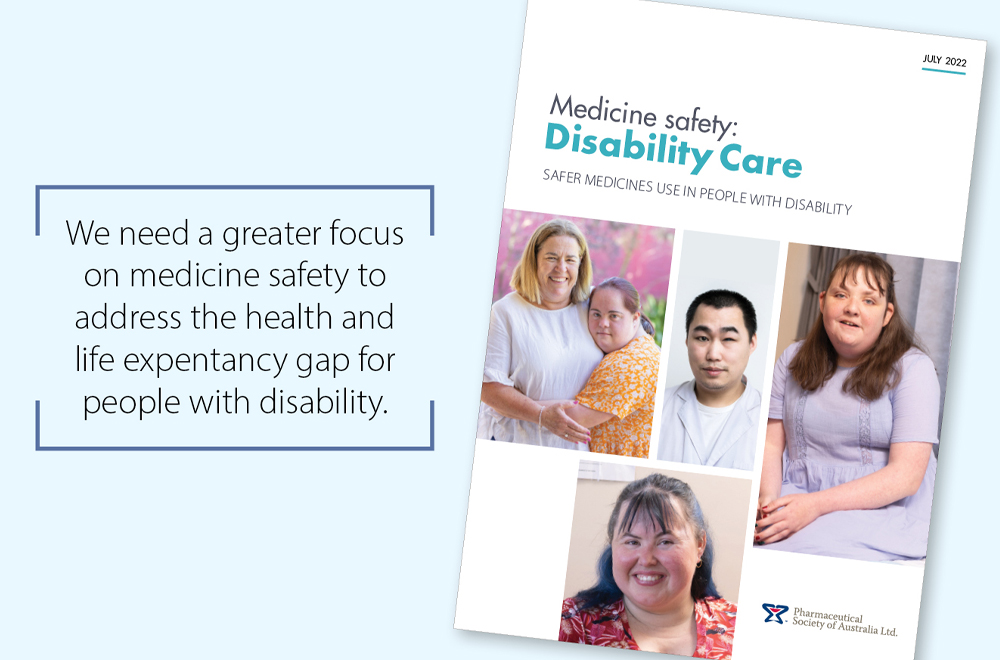Among the many challenges faced by people with disability is the safety use of medicines. To address this the Pharmaceutical Society of Australia (PSA) has launched it its Medicine Safety Series, Medicine Safety: Disability Care.
The report outlines significant challenges to safe medicine use within the disability sector, including inappropriate prescribing, problems taking medicines, inadequate access to medication management review services and difficulty accessing health professionals.
PSA national president Dr Fei Sim, said more needs to be done to ensure medicine safety for the approximately 4.4 million Australians living with disability, many requiring complex medical care.
“This report is an important step in identifying the real and significant issues patients with disability face and a greater focus on medicine safety is key to addressing the health and life expectancy gap for people with disability,” she said.
The report also found that many medicine safety problems are likely unreported, as data generally does not include people with disability living independently, with family in home care, or in residential care, and very few Australian studies have been conducted on medicine safety issues experienced by people with disability.
The overuse of chemical restraint remains a significant concern with almost three in four people with intellectual disability in a residential facility being chemically restrained for more than five years.
The report recommends that medicine safety be improved across the disability sector by:
- Embedding pharmacist roles in disability provider organisations
- Enabling access to pharmacists under the NDIS (particularly access to medication management services)
- Allowing pharmacists to administer vaccines and injectable medicines in flexible settings (such as at home)
- Enhancing quality indicators for disability care.
PSA’s first medicine safety report, Medicine Safety: Take Care estimated that medicine-related problems cause 250,000 hospital admissions each year, with an annual cost of approximately $1.4 billion, and at least half of these hospital admissions are preventable.
This latest report highlighted the significant difference in life expectancy in Australia, with people with intellectual disability experiencing a 20-32 year shorter lifespan.

